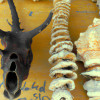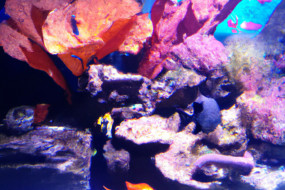
The use of animals for medicinal purposes has a long and complex history, with cultural and ethical implications. In traditional medicine, animals have been revered for their healing properties, but this practice has also been criticized for its impact on animal populations and conservation efforts. This article explores the roles that animals play in traditional medicine, their cultural significance, and the controversies surrounding their use.
History and Culture
The use of animals in traditional medicine can be traced back thousands of years, with records of animal products being used for their medicinal properties in ancient Greek and Chinese texts. In many cultures, certain animals are believed to possess special healing properties and are used in various forms of medicine. For example, dried seahorses are used in traditional Chinese medicine to treat a range of ailments. Rhino horn is widely used in traditional medicine in Southeast Asia, despite it being made of keratin, the same material found in human nails and hair. In some African cultures, parts from certain animals are believed to have spiritual and medicinal properties. The use of animals in traditional medicine is often deeply ingrained in cultural identity, representing a source of pride and tradition for many communities.
Conservation and Controversy
While the cultural significance of using animals in traditional medicine is important, this practice has faced growing criticism due to the impact it has on animal populations and conservation efforts. The demand for animal products used in traditional medicine has led to widespread poaching of endangered species, including tigers, rhinos, and pangolins. This has caused devastating declines in their populations, threatening their survival. Conservationists argue that the protection of these species is necessary for maintaining the health of ecosystems and preserving cultural heritage. However, supporters of traditional medicine argue that the use of animal products is a natural and sustainable alternative to synthetic medicines.
Alternatives and Modern Practices
As the debate over the use of animals in traditional medicine continues, researchers are seeking alternative methods to provide natural remedies while preserving wildlife. Some traditional healers and practitioners are turning to plant-based and synthetic alternatives to animal products, and there is growing interest in the development of traditional medicines based on scientific research. Modern technology has also enabled the production of plant-based and synthetic alternatives to animal products with similar medicinal properties. With new advancements, traditional medicine may evolve into a more sustainable and ethical practice.
















